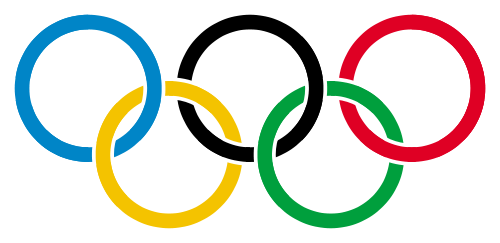Why Women Love the Olympics

Regular season sports struggle to rally female audiences. When it comes to the Olympics, however, adult women make up the lion's share of viewers. During the last two Summer Games, they out-watched men by a 5-to-4 margin, according to NBC viewership data.
Why do women like the Olympics so much?
To find out, two researchers talked sports with 19 married, heterosexual women, ages 26 to 43. As detailed in the June issue of the journal Communication, Culture & Critique, nearly all of the women expressed a preference for the Olympics over regular-season sports, for three main reasons: patriotic feelings, the inclusion of traditionally "feminine" sports like gymnastics and figure skating, and the Games' fast pace.
"Women preferred the condensed style of coverage, something they described as easy to follow," said lead study author Erin Whiteside, a professor in the School of Journalism and Electronic Media at the University of Tennessee.
Baseball or football fans often gradually glean details about players over the course of several months, and must learn the context and consequences of each game as part of a complex system of conferences and ranked teams. [What's the Toughest Sport?]
By contrast, the frequency of events during the Olympics, as well as the buzz around it — from TV profiles of athletes and radio interviews to the splash of Olympic news — provide easy points of entry for women, according to the study. There's also an easy exit: The Games are over in two weeks. The women in the study said they preferred short sporting events over sports with longer seasons.
According to the authors, their results may help to explain why "women's sports have languished on the periphery of the sports media landscape." Although many female athletes have risen in prominence and popularity in the 40 years since the passage of Title IX, a 1972 law ensuring equal funds for male and female sports in schools, the audience for women's sports "has not materialized." It seems that regular-season sports just aren't structured in the short, fast-paced way that captures women's attention.
Sign up for the Live Science daily newsletter now
Get the world’s most fascinating discoveries delivered straight to your inbox.
The Olympic Games, on the other hand, hit all the marks.
Follow Natalie Wolchover on Twitter @nattyover or Life's Little Mysteries @llmysteries. We're also on Facebook & Google+.
Natalie Wolchover was a staff writer for Live Science from 2010 to 2012 and is currently a senior physics writer and editor for Quanta Magazine. She holds a bachelor's degree in physics from Tufts University and has studied physics at the University of California, Berkeley. Along with the staff of Quanta, Wolchover won the 2022 Pulitzer Prize for explanatory writing for her work on the building of the James Webb Space Telescope. Her work has also appeared in the The Best American Science and Nature Writing and The Best Writing on Mathematics, Nature, The New Yorker and Popular Science. She was the 2016 winner of the Evert Clark/Seth Payne Award, an annual prize for young science journalists, as well as the winner of the 2017 Science Communication Award for the American Institute of Physics.












